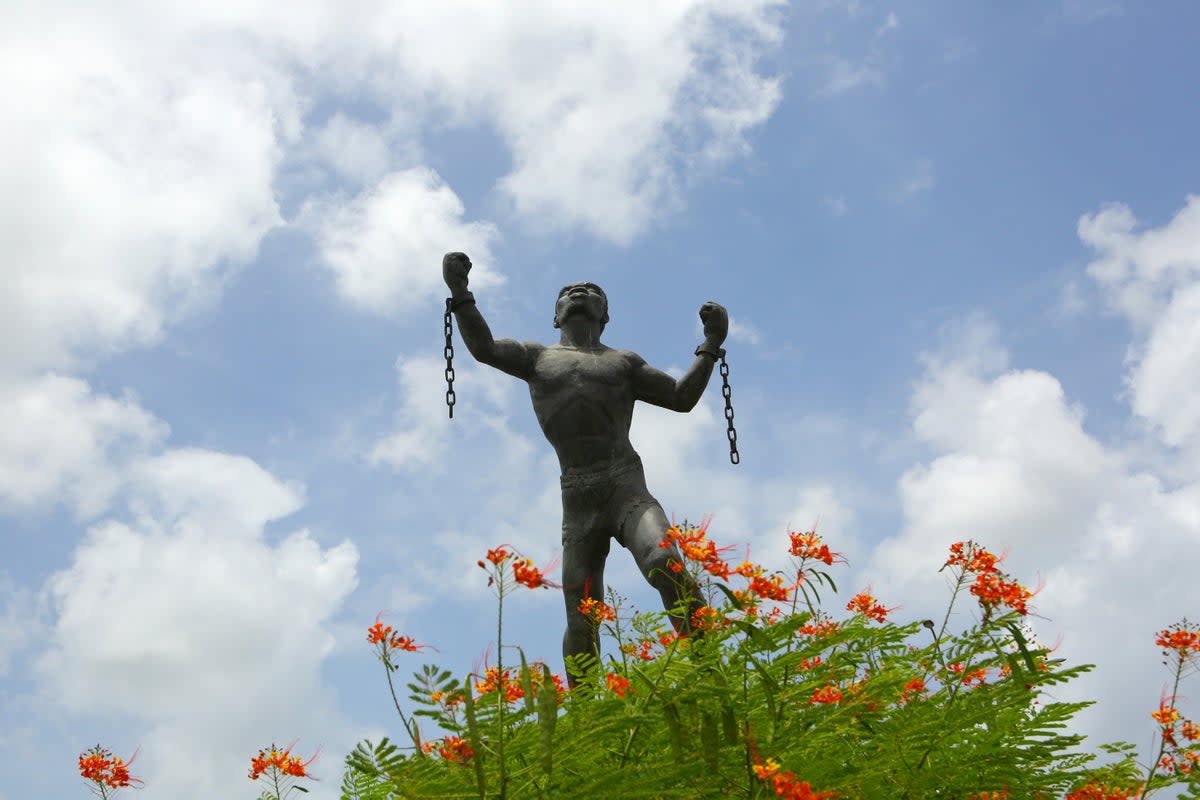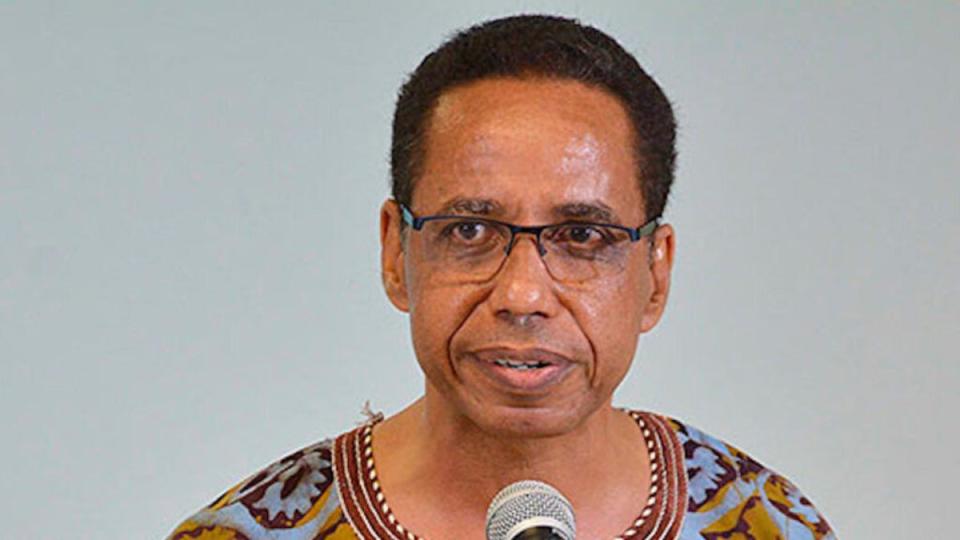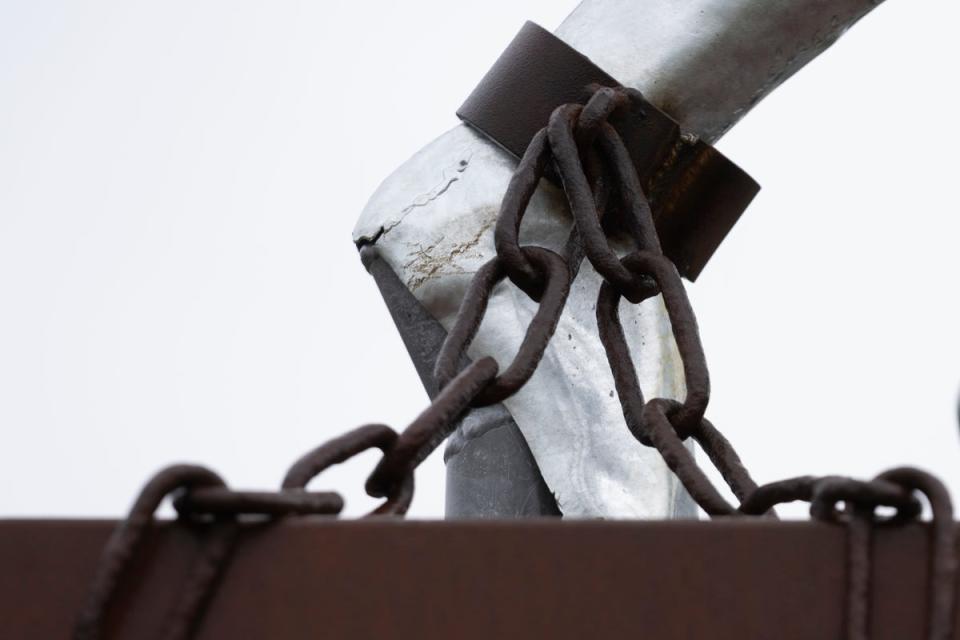Barbados ambassador calls on UK government and monarchy to apologise for slavery

A Barbados ambassador has called for the British government and royal family to apologise for slavery and pay reparations following the Church of England’s admission of its involvement in past atrocities.
David Comissiong, Barbados’ ambassador to the Caribbean Community (CARICOM), addressed the church’s “groundbreaking” developments in disclosing its involvement in the mass enslavement of African people, as the Caribbean nation continues to push for reparatory justice.
Barbados was the birthplace of the British slave society and was most ruthlessly colonised between 1636–1876; Mr Comissiong is the deputy chairperson of the country’s National Task Force on Reparations.
The Church of England’s investment fund’s “shameful” historic links to transatlantic slavery were laid bare in a full report on Tuesday, prompting it to announce £100 million of funding for a programme of investment, research and engagement to try to “address past wrongs”.
In the 18th century, the church “invested significant amounts” of its funds in the South Sea Company, a firm founded in 1711 to refinance England’s national debt which was awarded the monopoly on Britain’s trade of enslaved people to the Spanish Americas.
Other entities that invested in it include the British royal family, government, the Bank of England, scientific pioneers such as Sir Isaac Newton, and members of the ruling class of European nationalities including King Philip V of Spain.
“The reality is that the Church of England has confirmed that investment or other participation in the crime against humanity that the transatlantic slave trade was is more than enough to establish an obligation to apologise and to implement and finance – in consultation with representatives of the affected communities – a concrete programme of reparations,” Mr Comissiong said on Sunday.
“The eyes of all right-thinking people, all over the world, will now be on the British government, the British royal family, the Bank of England and other institutions of the British establishment, and the governments of Spain and other relevant European countries.
“How will each of them respond to the moral imperative that now confronts them? The world will be watching.”

The Church Commissioners for England announced the funding commitment on Tuesday. However, as it emerged that the institution is sitting on £10 billion, derived from the Anne’s Bounty, a predecessor fund of the church which had direct links with transatlantic chattel slavery, some critics have dismissed its £100 million as inadequate. On the other hand, some members of the church have slammed the funding package altogether.
Archbishop of Canterbury Justin Welby, chairman of the Church Commissioners, called the report’s interim findings “a source of shame” in June 2022 and reiterated his apology last week, saying “it is now time to take action to address our shameful past”.
The £100 million funding, to be delivered over the next nine years, will establish an impact investment fund to “invest for a better and fairer future for all, particularly for communities affected by historic slavery”, the church said.
"The involvement and culpability of the Anglican Church and the other relevant institutions actually go way beyond investing in slave-trading companies like the South Sea Company,” Mr Commisiong told The Independent.
“What the Anglican Church has established is that - at a minimum- investing in a slave-trading company like the South Sea Company requires the guilty entity to genuinely apologise and to be prepared to help repair some of the damage that was done, and that still persists in the lives of African descendants today.
“These are all crucial, historic, ground-breaking developments in their own right, but of equal, if not greater, significance is the invaluable light that they shed on other extremely important related aspects of our reparations campaign.”

The South Sea Company transported 34,000 enslaved African people “in crowded, unsanitary, unsafe and inhumane conditions” during its 30 years of operation, the report estimates.
Shareholders with over £10,000 worth of stock in the company included the Earl of Halifax, Charles Montagu, the founder of the Bank of England. That amounts to over £1.5 million in today’s money.
“There can be no doubt that the eighteenth and nineteenth-century slave trade was an unacceptable part of British history. As an institution, the Bank of England was never itself directly involved in the slave trade, but is aware of some inexcusable connections involving former governors and directors and has apologised for them,” a Bank of England spokesperson told The Independent.
“The bank appointed a researcher to undertake extensive research into this aspect of its history. Much of that research is presented in an exhibition in the Bank’s Museum which is free and open to the public.”
Weeks ago, it emerged that Barbados is pursuing reparations from Richard Drax, a sitting member of parliament and the UK owner of the largest former slave estate on the island. The nation became a republic, removing the British monarch as its head of state, in November 2021.
While the palace declined to comment, the UK government has been approached for a response to Mr Commisiong’s remarks.

